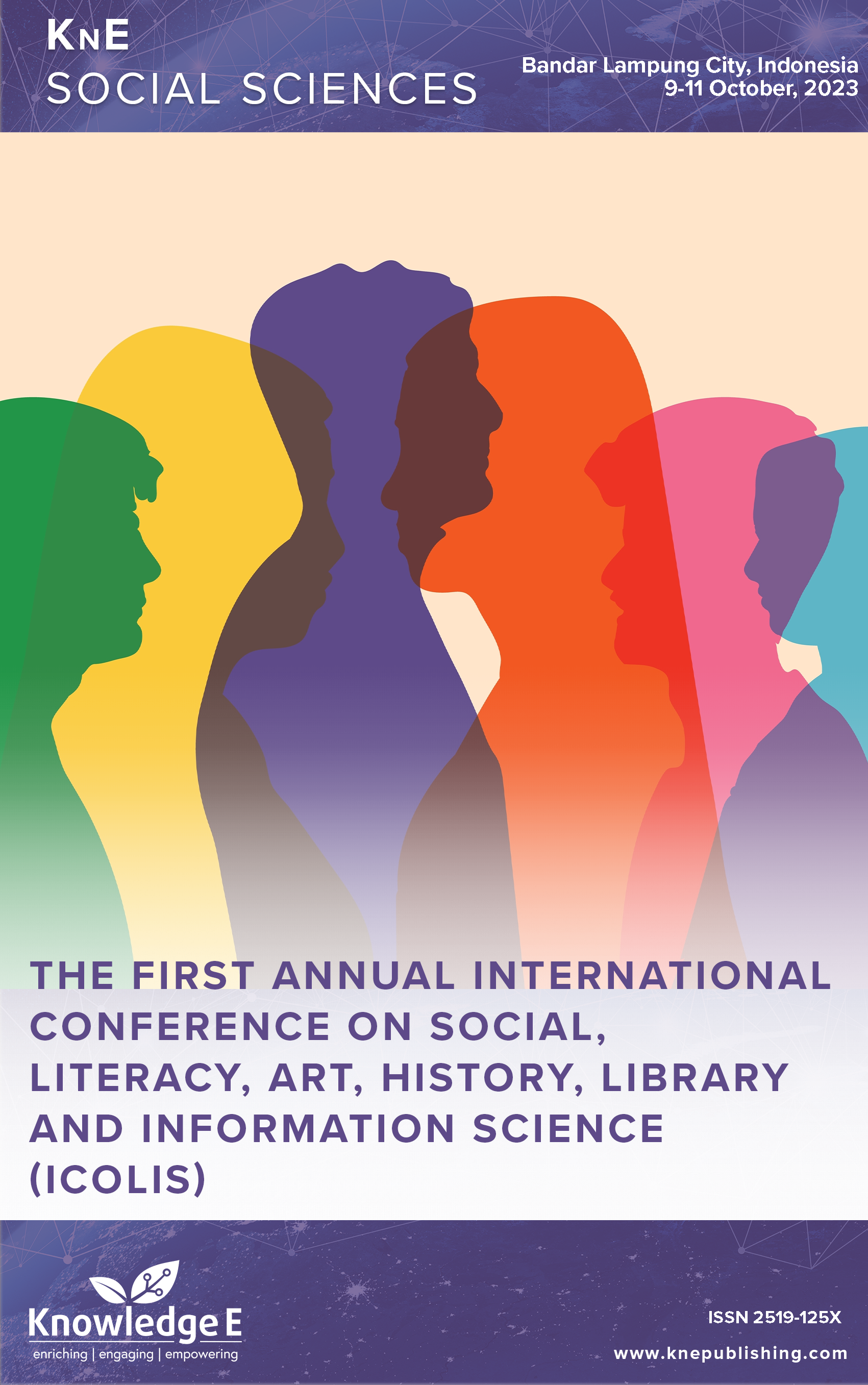The Total Archives Theory for Building Collective Memory and Cultural Identity in Archive Management at the Archives Unit of Lampung University
DOI:
https://doi.org/10.18502/kss.v9i12.15867Abstract
This article discusses the potential application of the total archives theory in the context of building collective memory and cultural identity at the Archives Management Unit (UPT Kearsipan) of Lampung University. The preservation and management of archives play a crucial role in preserving the history and culture of an educational institution, especially a university. This research aims to identify the challenges and opportunities faced by the Archives Management Unit of Lampung University in an effort to build collective memory and campus cultural identity. By applying the total archives theory approach, this study seeks ways to enhance a more holistic archive management approach involving all stakeholders and maximizing the use of technology in the process. The research methodology involves document analysis, interviews with UPT Kearsipan staff, and surveys of archive users. The results of the research indicate that the application of the total archives theory holds great potential in building collective memory and cultural identity at Lampung University. By leveraging technology, UPT Kearsipan can be more effective in managing, accessing, and documenting the archives, thus enabling broader access for stakeholders to explore the history and culture of the campus.
Keywords: collective memory, total archives theory, UPT Kearsipan Universitas Lampung
References
Anderson S, Blanke T. Infrastructure as intermediation – from archives to research infrastructures. J Doc. 2015;71(6):1183–202. DOI: https://doi.org/10.1108/JD-07-2014-0095
Azam MS. Diffusion of ICT and SME performance. Firms in Developing Nations Advances in Business Marketing & Purchasing. 2015;23A(7):290. DOI: https://doi.org/10.1108/S1069-096420150000023005
Beard F. Archiving the archives: the world’s collections of historical advertisements and marketing ephemera. Journal of Historical Research in Marketing. 2018;10(1):86– 106. DOI: https://doi.org/10.1108/JHRM-08-2017-0044
Blendon EJ. University archives: A reason for existence. Am Arch. 1975;38(2 (Apr.)). DOI: https://doi.org/10.17723/aarc.38.2.v0r5703733601070
Borglund E, Engvall T. Open Data?: Data, information, document or record? Rec Manage J. 2014;24(2):163–80. DOI: https://doi.org/10.1108/RMJ-01-2014-0012
Chakravorty T, Jha K, Barthwal S, Chakraborty S. Digital Technologies as antecedents to Process Integration and Dynamic Capabilities in Healthcare: An Empirical Investigation. J Int Technol Inf Manag. 2020;28(4):84–111. DOI: https://doi.org/10.58729/1941-6679.1438
Chen XH, Snyman MM, Sewdass N. Interrelationship between document management, information management and knowledge management. S Afr J Inf Manag. 2005;7(3): https://doi.org/10.4102/sajim.v7i3.270. DOI: https://doi.org/10.4102/sajim.v7i3.270
Feng Y, Richards L. A review of digital curation professional competencies: theory and current practices. Rec Manage J. 2017;28(1):62–78. DOI: https://doi.org/10.1108/RMJ-09-2016-0022
Fung AW. Utilizing connectivity and data management system for effective quality management and regulatory compliance in point of care testing. Pract Lab Med. 2020 Nov;22:e00187. DOI: https://doi.org/10.1016/j.plabm.2020.e00187
Gensburger S. Halbwachs’ studies in collective memory: A founding text for contemporary ‘memory studies’? J Classical Sociol. 2016;16(4):396–413. DOI: https://doi.org/10.1177/1468795X16656268
Jeon, J. J. (2011). Memories of memories: Historicity, nostalgia, and archive in Bong Joon-ho’s ‘Memoriesof Murder’. Cinema Journal, 51(1 Fall), 75–95. DOI: https://doi.org/10.1353/cj.2011.0065
Marciano R, Lemieux V, Hedges M, et al. Archival records and training in the age of big data. In: Percell J, Sarin LC, Jaeger PT, Bertot JC, editors. Re-envisioning the MLS: Perspectives on the Future of Library and Information Science Education: Vol. Vol. 44B. Emerald Publishing Limited; 2018. pp. 179–99. DOI: https://doi.org/10.1108/S0065-28302018000044B010
Mosweu O, Ngoepe M. Skills and competencies for authenticating digital records to support auditing process in Botswana public sector. African Journal of Library and Information Science. 2019;29(1):17–28.
Nesmith T. Seeing archives: postmodernism and the changing intellectual place of archives. Am Arch. 2002;65(1 (Spring-Summer)):24–41. DOI: https://doi.org/10.17723/aarc.65.1.rr48450509r0712u
Nurdin L. Archives as Information Infrastructure and Their Urgency Towards Research. Khizanah Al-Hikmah : Jurnal Ilmu Perpustakaan, Informasi. Dan Kearsipan. 2021;9(1):28. DOI: https://doi.org/10.24252/v9i1a4
Segaetsho T, Moloi J. Integration of digital preservation knowledge, skills and competencies in the teaching curricula of library and information studies at the university of Botswana. Mousaion. 2019;37(1):1–19. DOI: https://doi.org/10.25159/2663-659X/6436
Ocasio W, Mauskapf M, Steele CW. History, Society, and Institutions: The Role of Collective Memory in the Emergence and Evolution of Societal Logics [Book ,print]. Acad Manage Rev. 2016;41(4):676–99. DOI: https://doi.org/10.5465/amr.2014.0183
Shalaway L. Learning to Teach. Jose Luis Pelaez, Inc.; 2005.
19. Steedman C. Dust. The Archive and Cultural History. Rutgers University Press; 2001.
Stone FA. Theodore Brameld’s educational reconstructionism: An intellectual biography. Caddo Gap Press; 2003.
Sugiyono dan Arikunto. (2010). Prosedur Penelitian: Suatu Pendekatan Praktik. Rineka Cipta.

